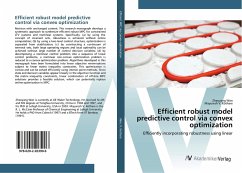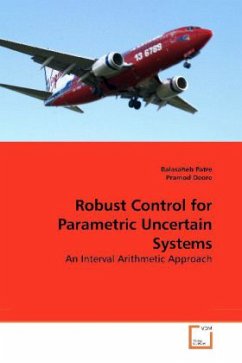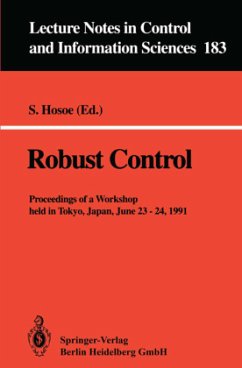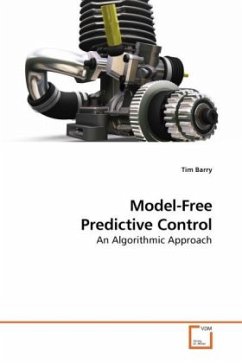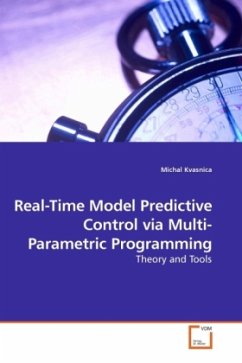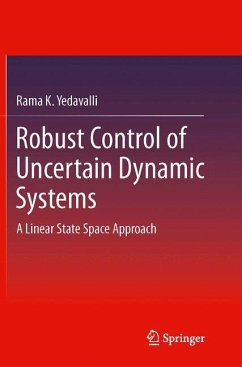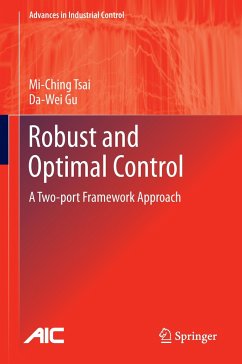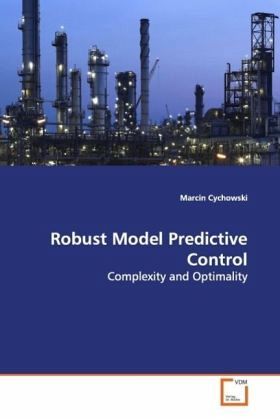
Robust Model Predictive Control
Complexity and Optimality
Versandkostenfrei!
Versandfertig in 6-10 Tagen
39,99 €
inkl. MwSt.

PAYBACK Punkte
20 °P sammeln!
Model predictive control (MPC) is regarded as the prime advanced control method for a wide class ofindustrial processes and perhaps one of the most significant developments in process control since the introduction of the PID controller in the early 1940 s. The success of the MPC paradigm in industryis primarily due to its unique constraint handlingcapability. This book investigates how the basicframework of model predictive control can beextended to handle uncertainty in the problem datawhile maintaining stability, feasibility and low-complexity. The framework of min-max control is studied in...
Model predictive control (MPC) is regarded as the
prime advanced control method for a wide class of
industrial processes and perhaps one of the most
significant developments in process control since
the introduction of the PID controller in the early
1940 s. The success of the MPC paradigm in industry
is primarily due to its unique constraint handling
capability. This book investigates how the basic
framework of model predictive control can be
extended to handle uncertainty in the problem data
while maintaining stability, feasibility and low-
complexity. The framework of min-max control is
studied in detail with specific emphasis upon the
inherent trade-off between controller complexity
and optimality. Using the concept of parametric
programming, a practical low-complexity algorithm is
presented which ensures robust closed-loop stability
without severely compromising optimality. The book
should be useful for researchers in the areas of
robust predictive control, linear matrix
inequalities and parametric programming, and
practitioners who may be considering utilizing
robust MPC in low-cost embedded systems areas
including automotive control, MEMS and power
electronics.
prime advanced control method for a wide class of
industrial processes and perhaps one of the most
significant developments in process control since
the introduction of the PID controller in the early
1940 s. The success of the MPC paradigm in industry
is primarily due to its unique constraint handling
capability. This book investigates how the basic
framework of model predictive control can be
extended to handle uncertainty in the problem data
while maintaining stability, feasibility and low-
complexity. The framework of min-max control is
studied in detail with specific emphasis upon the
inherent trade-off between controller complexity
and optimality. Using the concept of parametric
programming, a practical low-complexity algorithm is
presented which ensures robust closed-loop stability
without severely compromising optimality. The book
should be useful for researchers in the areas of
robust predictive control, linear matrix
inequalities and parametric programming, and
practitioners who may be considering utilizing
robust MPC in low-cost embedded systems areas
including automotive control, MEMS and power
electronics.



